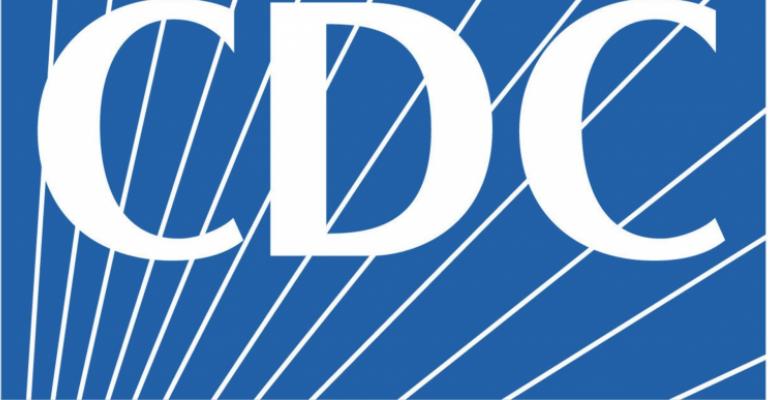Cruise operators had been expecting the CDC warning to go down as the Omicron impact declines and considering their ships' highly vaccinated status — 95% for most operating from the US.
But that did not happen.
The CDC stated: 'The virus that causes COVID-19 spreads easily between people in close quarters onboard ships, and the chance of getting COVID-19 on cruise ships is very high, even if you are up to date with your COVID-19 vaccines.'
At the same time, the agency released the first information about its new voluntary COVID-19 program for cruise operators.
Being boosted accords more freedoms
For the top tier 'vaccination standard of excellence' with 95% of eligible crew and passengers having received boosters, masks and social distancing would not be required, and the isolation for those testing positive would be just five days, with a similar five-day quarantine for close contacts. This isn't stated in the CDC's updated web page but is what cruise executives were told in a briefing with the agency.
So far, zero ships are in the 'vaccination standard of excellence' category.
Masks still required for 'highly vaccinated' ships
Next comes 'highly vaccinated' ships — those sailing in US waters with 95% of the onboard population fully vaccinated. This category numbers 103 ships currently.
For 'highly vaccinated' ships, masks would be required onboard but not distancing, along with a 10-day isolation/quarantine period — again, according to what cruise executives were told in a CDC briefing.
Interestingly, Norwegian Cruise Line, Oceania Cruises and Regent Seven Seas Cruises — which have had 100% vaccination mandates but no booster requirement — have just informed they'll be doing away with masks March 1 so this wouldn't seem to sync with the new rules. NCLH said in a statement that it's reviewing the CDC guidelines.
Royal Caribbean International implemented an enhanced mask policy in December that is set to expire on Feb. 14. Royal Caribbean Group said it's reviewing the new guidelines.
The third tier, with fewer than 95% vaccinated, would require masks and social distancing on board and 10-day isolation/quarantine periods.
'Out of step' and confusing
Cruise Lines International Association blasted the new guidance which 'appears out of step with the actual public health conditions on cruise ships and unnecessary in light of societal trends away from more restrictive measures.
'We are confounded by the CDC’s imposition of even more complex and unwarranted measures which ignore empirical evidence that the industry’s protocols have provided a greater level of COVID mitigation than most any other setting,' CLIA said. 'The CDC’s guidance for multitiered cruises is counterproductive to consumers, creating market confusion between the various tiers, and potentially unworkable in practice.'
CLIA said its members are 'fervently devoted to preventing the spread of COVID-19 and protecting passengers, crew, and the public against any adverse health consequences.'
The association noted that unlike other travel and entertainment alternatives, cruise ships test all persons boarding, have medical, isolation and quarantine facilities on site, implement extensive response plans using only private shoreside resources, and have created an environment where almost every person is fully vaccinated.
'The result has been a dramatic drop in the number of COVID-positive cases, with hospitalizations being extraordinarily rare — in fact 80 times lower than on land in the US,' CLIA stated.
Dismay at any Travel Health Notice for cruising
Against this backdrop, CLIA expressed dismay at CDC’s decision to maintain any Travel Health Notice for cruising.
'CDC has long recognized the paramount importance of vaccination in protecting against COVID-19 and the vaccination rate on cruise ships is close to 100%, whereas on land it is only about 63%,' the association said. 'It seems unnecessarily discriminatory against cruise to maintain that the chances of getting COVID-19 on a cruise is "very high" even if you are up to date with your COVID-19 vaccines. This discounts the importance of what the CDC has otherwise promoted as the single most important touchstone for public health and safety.'
CLIA added member lines will continue to comply with regulations and are 'committed to continue working with the CDC in mutual, cooperative partnership as part of our shared commitment to putting health and safety first.
'Part and parcel of that goal is seeing signals from CDC that it recognizes the lengths the entire cruise industry has gone to and the success it has achieved in guarding against COVID-19.'
Abundant Level 4 warnings
'Level 4 for cruising doesn't make a lot of of sense,' a cruise line operations person said, adding 'the policies that were originally set out have and continue to be the gold standard to ensure guest and crew safety on board as well as the destinations they visit.'
But the executive also pointed to the CDC's abundance of Level 4 warnings. More than 130 countries are currently on the 'do not travel' list, including some, like the UK, Denmark and Norway, that are easing their COVID restrictions.
Booster emphasis
Regarding the new tiered system, the executive said 'It's telegraphing the importance of a booster for continuing even safer guest operations and [communicates] if you're boosted, you get more flexibility.'
So far only TUI Cruises, Hapag-Lloyd Cruises, Silversea, Azamara and Lindblad Expeditions have set booster mandates.
But other lines have been strongly encouraging passengers to get boosted since it appears a growing number of destinations will be requiring boosters.
Copyright © 2024. All rights reserved. Seatrade, a trading name of Informa Markets (UK) Limited.
Add Seatrade Cruise News to your Google News feed.  |

